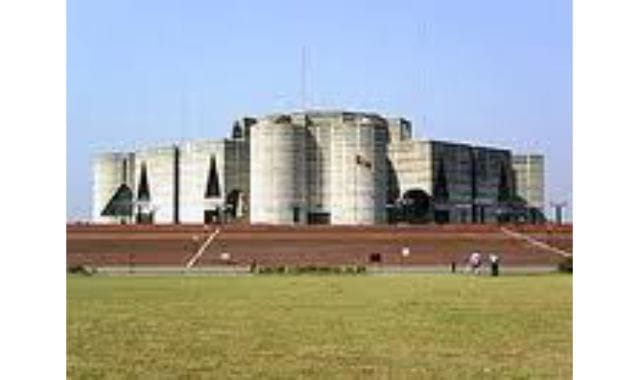An obstruction to constitutional right to be governed by elected 'National Leader'
Ours is a parliamentary democratic Country. In our form of parliamentary democracy the general inhabitant of a constituency elect their representative in the National Parliament, i.e. the member of the Parliament - the members of the Parliament elect the President of the State; thereafter the President appoint Prime minister from the elected members of the Parliament; the ministers are appointed by the President with the advice of the Prime Minister (1/10th of the cabinet may be appoint from non-elected person).
President may or may not be a elected member of the Parliament, if he is an elected member of the Parliament his Parliamentary seat shall be declared vacated on the date of his taking charge as President.
In the above mentioned form of government, President of the state, who has not been elected in direct general election as the Head of the State, is in charge of appointing Prime Minister, Ministers and Supreme Court Judges. That means a non-elected person is actually governing our Executive, Legislative and Judiciary i.e. the Country.
In the preamble of our Constitution we proclaimed that “We, the people of Bangladesh, . . . . Affirming that it is our sacred duty to safeguard, protect and defend this Constitution and to maintain its supremacy as the embodiment of the will of the people of Bangladesh so that we may prosper in freedom and may make our full contribution towards international peace and co operation in keeping with the progressive aspirations of mankind; furthermore Article 7 of the Constitution states “All powers in the Republic belong to the people”.
In these two ways we, the People of the Peoples' Republic of Bangladesh, have been constitutionally assured to be the beholder of the Supreme power in relation the protection of 'WILL'.
Are we really been Constitutionally empowered to protect our general 'will' by electing our 'governor' The Head of the State The President?
Our structure of Parliamentary democracy is a device which provides general people to express their individual choice, which may or may not be taken care of. An individual choice will only come into effect if that choice's ideological group can be proved to be popular in number in national Parliament. My vote for a person who wins in my constituency will not secure the value of my vote unless that person's ideological group succeeds to secure majority seat in National Parliament. That means if I unfortunately vote for a person whose ideological group fails to secure majority seat in national parliament, even if he himself proved popular in my constituency, my vote will not carry any value in national politics as, being minority, his ideological group would not be able to implement any policy to govern the state.
Furthermore, in parliamentary democracy I am only electing a member for the National Parliament, who will be the liaison of the government for my area who will only carry out the policy of the government for my area; he may not be a policy maker if he is not a part of the majority ideological group; in this way my vote may proved to be a valueless one in respect of policy making.
Actually, parliamentary democracy is a device to deceive general people as to their right to choose their 'Leader'. In this form of government the citizens are only electing a member of parliament, who may or may not be able to take policy decision for them.
The best part for a politician in Parliamentary Democracy is that, he simply needs to be known in his locality to be a part to the national politics and national policy making. To be known within a small locality is easy one can easily be known by putting posters all over the area, doing nominal charity, erecting socio-religious establishments. For the local politician it is more important to be popular to the leader of his ideological group rather than to the people of his constituency.
In order to avoid this deception of the parliamentary democracy we may opt for Presidential form of government. Presidential form of government is our heritage; Mujib Nagar Government was a Presidential form of Government. In Presidential form of government a politician, to be elected as the President, has to be 'National Leader' instead of local hero. To get the opportunity to govern us the potential candidates has to be known and praised by the nation (majority wish, expressed in general election).
Presidential form of Government requires a 'National Leader' who is known and admitted as a leader for the nation; that leader's ideology may or may not be accepted by every citizen of the country but if he has been elected as the head of the state in a general election, it can at least be considered as the choice of the majority citizen of the state. This direct rate of popularity cannot be calculated in Parliamentary Democracy due to its two tire election process at the first stage the general citizen will elect the member of the Parliament and in the second stage the members will elect the head of the state; the citizens are not directly electing the head of the state.
A true democracy requires real representation of the citizen's wish by literal implementation of Article 7 of our constitution. Our Constitution, gives us right to be governed by our choice, at the same time hindering this right by the mechanism of other Articles. This anomaly needed to be addressed with proper care. Our constitutional right shall be protected with a mechanism where we will be able to elect our representative our 'Leader', in a direct general election, to carry out our mass 'Will'.
The writer is a Barrister-at-Law.


 For all latest news, follow The Daily Star's Google News channel.
For all latest news, follow The Daily Star's Google News channel. 



Comments